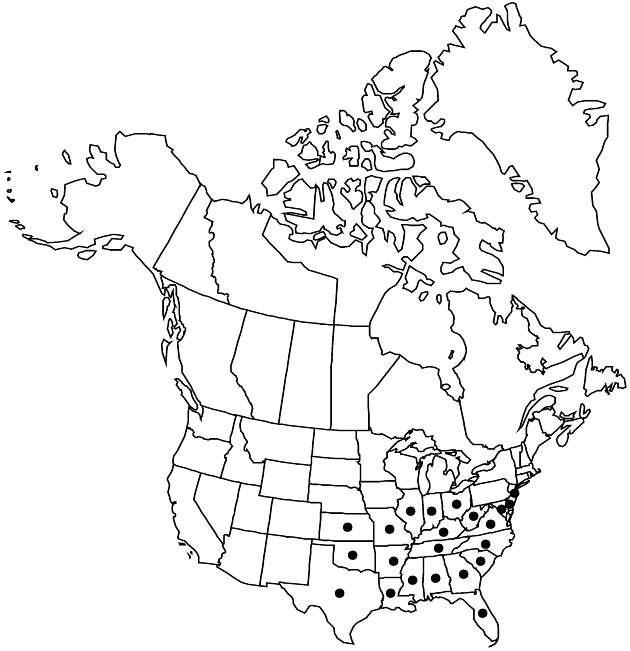Krigia dandelion
Gen. N. Amer. Pl. 2: 127. 1818.
Perennials, 10–50 cm; rhizomes relatively slender, fibrous-rooted, tubers overwintering, globose, 5–15 mm diam., caudices fibrous-rooted. Stems scapiform, erect, leafless and ebracteate, glabrous or minutely glandular-villous especially proximal to heads. Leaves basal; petioles usually broadly or narrowly winged; blades linear to lanceolate or oblanceolate, 6–24 cm, margins entire or remotely toothed to pinnately lobed, lobes usually entire and acute, apices acute to obtuse, faces usually glabrous, sometimes sparingly villous (glandular or eglandular, often glaucous). Heads borne singly. Peduncles from basal rosettes. Involucres 10–15 mm. Phyllaries 12–16, reflexed in fruit, linear-lanceolate, midveins obscure, apices acute. Florets 25–34; corollas yellow to yellow-orange, abaxially often purplish-tinged, 15–25 mm. Cypselae reddish brown, columnar, 2.5 mm, 10–15-ribbed; pappi of ca. 10, outer scales 0.5–1 mm plus 25–45, barbellulate inner bristles 5–8 mm. 2n = 60.
Phenology: Flowering Apr–Jun.
Habitat: Sandy or clay-loam soils, open mixed mesophytic and oak-hickory woods, fields, pastures, roadsides
Elevation: 10–500 m
Distribution

Ala., Ark., Del., Fla., Ga., Ill., Ind., Kans., Ky., La., Md., Miss., Mo., N.J., N.C., Ohio, Okla., S.C., Tenn., Tex., Va., W.Va.
Discussion
Krigia dandelion is known from the Eastern deciduous forest biome and tallgrass prairies. It is unique in propagating extensively by means of tubers. These were well described by T. Holm (1891). All chromosome counts to date have shown 2n = 60, the duodecaploid number based on x = 5.
Selected References
None.